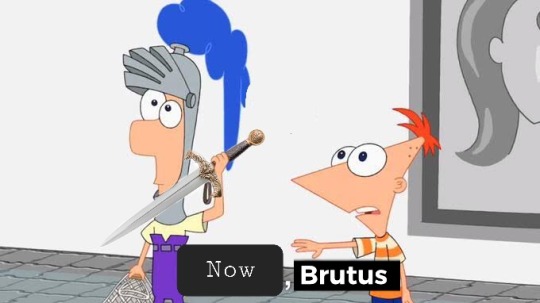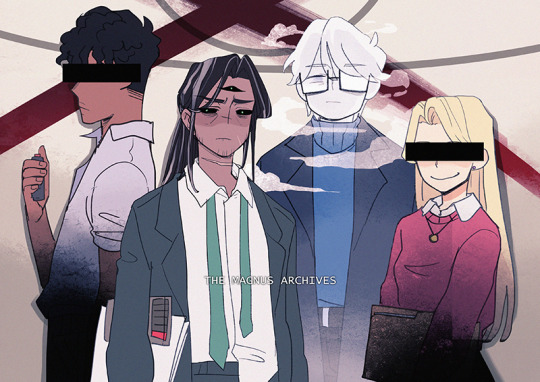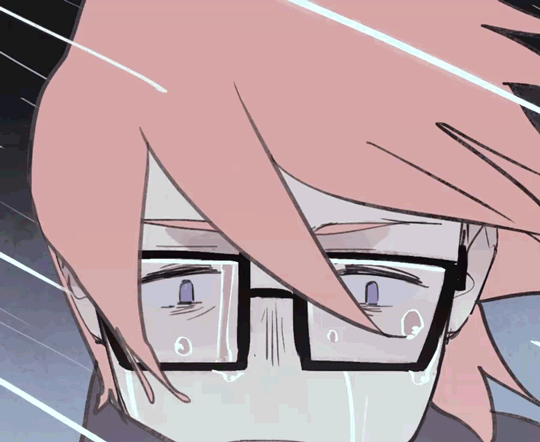Text


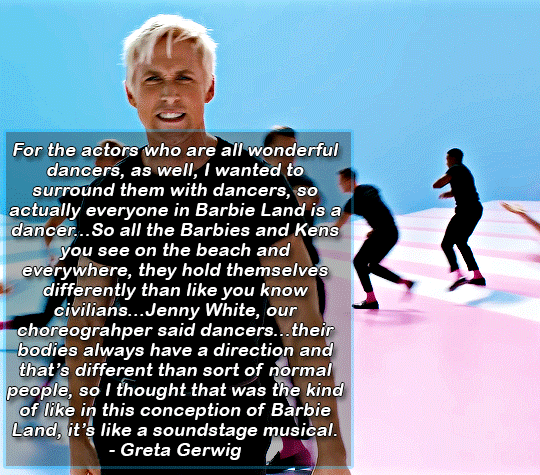

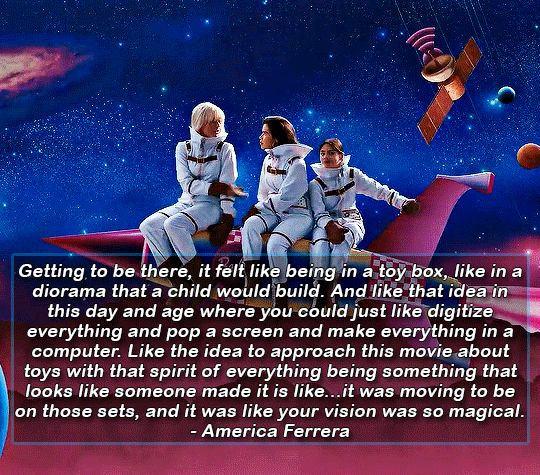

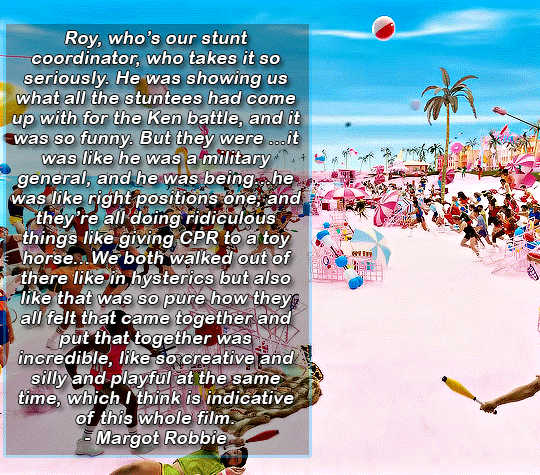


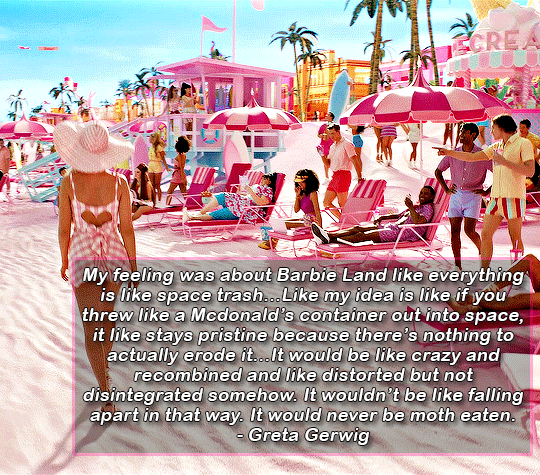
BARBIE (2023) + CAST INTERVIEWS PT. 2
The Cast of Barbie | Around The Table
3K notes
·
View notes
Text

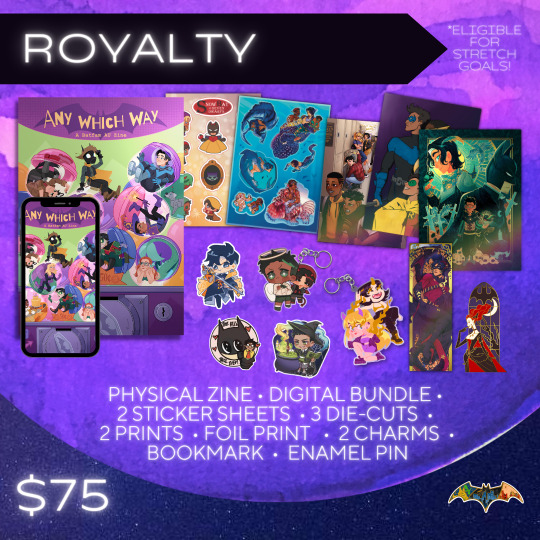
💫 GIVEAWAY
It's time for our giveaway, where three lucky winners will get a free full bundle (have we mentioned we've unlocked three stretch goals?)! The three runners-up will win a free digital bundle!
The giveaway closes May 12, with winners announced the following weekend. We’ll also be running giveaway games starting this Thursday for extra entries, so keep an eye out!
HOW TO ENTER:
1. follow us
2. share this post
We're also running this on Twitter!
More details below 👇
one prize per person
there will be three total winners from three different pools - Tumblr reblogs, Twitter retweets, and mailing list form
those found using a giveaway account to enter will not be considered
available internationally
shipping included in the prize! but if international, the winner will be responsible for any customs fee
prizes will be shipped during our general shipping period
if the winners have already purchased a bundle, they will receive either an upgraded bundle or the price of the won bundle refunded to them (whichever is more favourable)
if the runners-up have purchased/wish to purchase a physical bundle, they will be refunded the cost of the digital bundle
499 notes
·
View notes
Text
Re: whether or not Miles actually has the real Mona Lisa: while it being the real thing does provide greater commentary I propose to you that the painting being fake unlocks the potential for a short film about the horrified and pissed off Louvre employees who can’t believe they’ve been asked to turn over The Mona Lisa to this guy scrambling to put together a fake and hide the real one. In terms of the commentary, you can even have your cake and eat it too, if the French government agrees to loan it out bc billionaire corruption and so it’s the average museum employees lying through their teeth to the government and risking felony offenses to protect the art.
My proposed cast of characters:
1. The elderly curator who’s forgotten more about da Vinci and renaissance art than most people learn in a lifetime, was mentored by a dude who smuggled art out of France to hide it from the Nazis and the second he sees the request from miles is like “M. Laurent did not get shot in the leg by a Nazi shithead for me to simply hand over Joconde to this idiot, he would crawl out of his grave and murder me himself and he would be right to do so”
2. The art conservation and repair expert who has worked on the Mona Lisa personally for the past decade, knows her better than just about anyone else in the world, one of probably like three people alive who’s allowed to actually touch her, comes across as high strung and business like but has the deepest and most genuine love for the art pieces and is fiercely dedicated above all else to the idea that art belongs to EVERYBODY, that her job is not the preservation of art for art’s sake but the preservation of art for future generations to see and fall in love with just like she did
3. The 18-year-old who was supposed to be here on an internship except The Covids Happened and now they’re in a bizarre employment limbo where they are sort of still interning but the actual job is not at all what it was supposed to be. Enthusiastically anarchic and socialist and almost concerningly Down For Crime
Together they have to team up for a mini heist-like adventure to convince Miles Bron and the French government that they are handing over the real Mona Lisa while engaging in shenanigans to keep the real thing safe and hidden
9K notes
·
View notes
Text
Harry Wilson and the legacy of Nathan Ford
Harry Wilson has heard the many legends and exploits of one Nathan Ford. The man is painted as a ruthless, cunning, unstoppable force of nature that Harry is mildly relieved to never have met. On the other side is the fingerprints he’s left on the team that aren’t so much spoken about as they are shown:
…
The way Sophie’s smile turns a little more genuine when someone mentions her late husband, the ever-present mask she wears cracking a little to show something a little more real.
The way Eliot gets frustrated sometimes and looks a little to the left of Sophie, as if expecting someone to be there and intercede on his behalf. As if he got used to having someone to complain to, commiserate with. Someone he could confide in and be a little childish with, too.
The way Hardison will pull off an amazing forgery, crack an impossible code, create a piece of tech that borders on science fiction and look around the room with a megawatt smile that dims a bit when he realizes the person who’s approval he’s looking for isn’t there. He goes from youthful jubilance to suddenly looking his age in a fraction of a second, but Harry don’t miss the turn. Harry don’t miss when his eyes went from wide-eyed excitement to a more subdued pride.
The way Parker seems to compare Harry to another man and then dismiss the thought entirely. Because Harry isn’t him, could never be him. She doesn’t seem disappointed or relieved, just neutrally accepting. He catches her talking to an old painting a few times. Talking to it like she’s seeking guidance. Hardison catches him watching her one time and says “She’s just rubber-ducking,” but Harry thinks there’s more to it than that. She tells Old Nate about her latest social interactions and asks why people behave the way they do. Her body language is different–more open, vulnerable. She is completely herself with the painting, unafraid of being questioned or laughed at. Comfortable in the belief that she won’t be judged or mocked. It tugs at something in Harry’s chest and he’s reminded of his daughter for a moment. Not because Parker is reminiscent of a child, but because she’s reminiscent of a daughter who has all the faith in the world that her dad will have all the answers for her.
…
Nate Ford is a superhero he could never live up to and will never attempt to replace. Besides, the team doesn’t need another Nate Ford. They seem to be happy enough with the ghost of him. So Harry has two Nathans warring in his head: the relentless predator staking his prey, and the once-broken alcoholic who helped give a remarkable group of people a reason to stick together.
For many reasons, Harry Wilson is glad he never met Nathan Ford. The man who could and would have terrified him. The man he could never live up to. That is, until Sophie begins telling the story of one Jimmy Papadokalis and the memory of the most frustrating court proceedings of his life surface to mind. He surprises the team (and himself) when he suddenly yells out, “You mean Nathan Ford was THAT ASSHOLE??”
1K notes
·
View notes
Text
Leverage Redemption James Sterling Episode:
The team is on a con when someone hears that Interpol is on the scene cue everyone but Harry (on coms) going "no it couldn't be" "who?" "but what if it is" "he wouldn't be" "who?!" "but wouldn't he" "he might be" "WHO?!"
And then they do the classic reveal with the musical cue and everyone in sync "Sterling."
Harry: "like the washing machine?" Sterling walking into the room: "The rifle, actually"
Sophie is there standing next to Harry so Sterling looks at her and then gets close to Harry and sizes him up before stepping back and saying "him? really?" Sophie: "hes a stray found him his first time trying to steal a Rembrandt" Sterling pikachu shock face: "no, this guy?" Sophie: "with a youtube tutorial" Sterling: "really scraping the bottom of the barrel these days, huh?" Harry: "you know im still standing right here"
{[Plot ensues with whacky hijinks a la The Frame Up Job]}
Sterling and Sophie have a moment alone when everything is said and done Sterling admits that maybe he let the team get away as a last favor to Nate and Sophie tells him that she knew Sterling was going easy on them
Sophie: "do you miss him?" Sterling: "of course i do, but you already knew that" "just wanted to hear you say it" "ill see you around, Sophie. next time i won't go so easy on you" "looking forward to it, Sterling"
They share one last sad smile and a look charged with a challenge for next time before Sterling walks away and Sophie takes a sip from her drink with a look that speaks of past memories of her adventures with Nate
The End
1K notes
·
View notes
Text
Everytime someone says bring back Nate, I shiver with dread.
And for someone who's a really big fan of Nate, I really would hate having to see him come back to Redemption. I saw on a Facebook group I'm in where someone asked how Nate would react to the Jackal Job, and I remember thinking that Nate, the Catholic man, would either not be a supporter or simply not be able to empathize or participate in the con without prejudice.
Look, OG Leverage has a place in my heart for a reason, but I cannot justify bringing back Nate at all. Nate's story could never fit into Redemption for a variety of reasons.
OG Leverage took the experiences Nate had and made a point in every episode why the man does what he does.
OG Leverage was about revenge first and foremost, then doing the right thing after, then building something more.
You know the reason why the stories never mentioned the disabled, the LGBTQ+, or the plain old voiceless of immigrant communities (this one was touched on but not really)?
It's because it wasn't Nate's story to tell. The original message was, if you are in a position where you have been wronged, then you should have the power to make it right. You deserve a second chance. That's why he always dealt with the scammers, the rich white men, the corporate greed, etc. He always tried to give people a second chance from a dumb or honest mistake, or to right someone's wrong.
That's why the Black Book was so important by the end of OG Leverage. It closed Nate's story with the idea that what has been wronged will be righted even if it meant taking a less than legal approach by others who are willing to bring justice to light.
Redemption is not that story. I mean it is, but it isn't. Redemption is the story where those less fortunate, those who are inherently going to lose no matter what they do, get a voice. They deserve a say in how they are treated, and they, as much as the impoverish and the naive, can have the power given back to them.
It's shown with victims like the elderly, the disabled, the people of color, the young who don't quite fit the social norm, and the LGBTQ+ community.
Through Harry Wilson, Redemption also shows us that those with power, need to take responsibility for their actions. It is not enough to fight those in power, but that people like Harry - who do have power, are vitally needed to change the system.
Redemption does not need to see Nate to accomplish this story, but the fact remains that the message Nate started is still here, if not more refined and nuanced than ever before.
Nate should not come back to Redemption because his story was told in OG, and now, a new story can begin where the crew can be expanded and fight for what's right as well as give every victim of an injustice, an opportunity to tell their story as well.
2K notes
·
View notes
Text
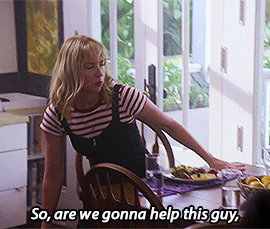
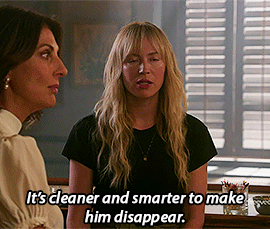


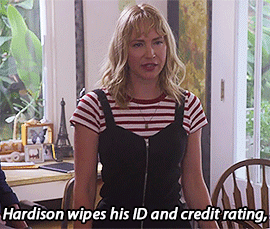
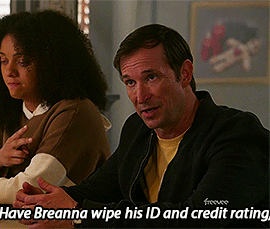



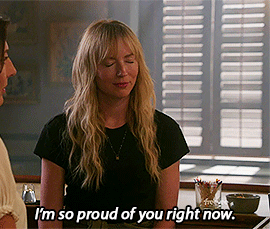
Leverage: Redemption 1x01 | Leverage: Redemption 2x02
Bonus:
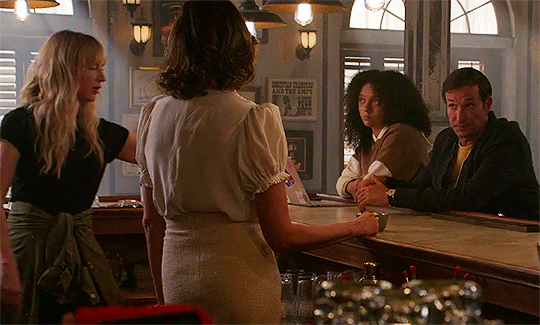
3K notes
·
View notes
Text
ok but if bruce wayne somehow came upon zuko fresh out of banishment he would lose his mind.
black hair? check. bad parent(s)? check. trauma? double check.
bruce: how’d you get your scar?
zuko: my dad got mad at me for saying that killing people is wrong so he lit my face on fire and banished me.
bruce, vibrating with excitement, already pulling adoption papers from his utilility: that’s terrible. how do you feel about capes.
248K notes
·
View notes
Text
another wip for this video. im working on this thing day and night so that i can somehow finish it before school resumes
957 notes
·
View notes
Text
yet another tma animatic (now featuring Also-Martin!)
2K notes
·
View notes
Text

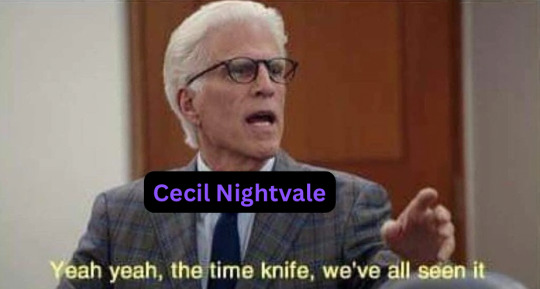
Thinking about the difference between podcast main characters
23K notes
·
View notes
Text
Good riddance to the Open Gaming License
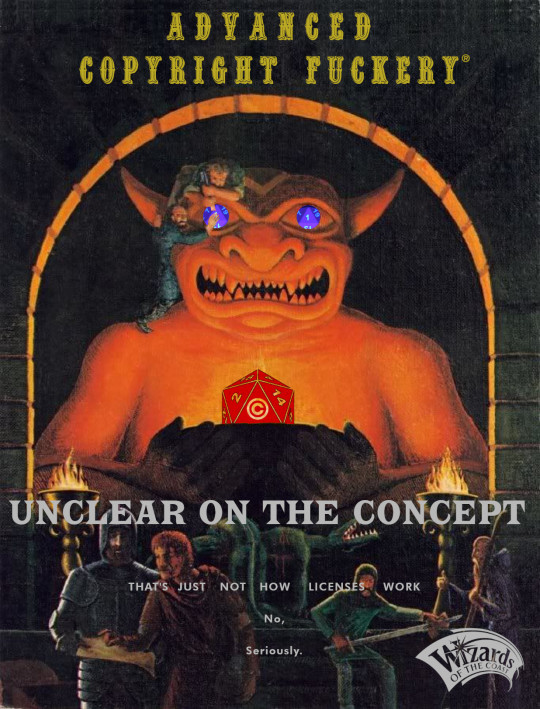
Last week, Gizmodo’s Linda Codega caught a fantastic scoop — a leaked report of Hasbro’s plan to revoke the decades-old Open Gaming License, which subsidiary Wizards Of the Coast promulgated as an allegedly open sandbox for people seeking to extend, remix or improve Dungeons and Dragons:
https://gizmodo.com/dnd-wizards-of-the-coast-ogl-1-1-open-gaming-license-1849950634
The report set off a shitstorm among D&D fans and the broader TTRPG community — not just because it was evidence of yet more enshittification of D&D by a faceless corporate monopolist, but because Hasbro was seemingly poised to take back the commons that RPG players and designers had built over decades, having taken WOTC and the OGL at their word.
Gamers were right to be worried. Giant companies love to rugpull their fans, tempting them into a commons with lofty promises of a system that we will all have a stake in, using the fans for unpaid creative labor, then enclosing the fans’ work and selling it back to them. It’s a tale as old as CDDB and Disgracenote:
https://en.wikipedia.org/wiki/CDDB#History
(Disclosure: I am a long-serving volunteer board-member for MetaBrainz, which maintains MusicBrainz, a free, open, community-managed and transparent alternative to Gracenote, explicitly designed to resist the kind of commons-stealing enclosure that led to the CDDB debacle.)
https://musicbrainz.org/
Free/open licenses were invented specifically to prevent this kind of fuckery. First there was the GPL and its successor software licenses, then Creative Commons and its own successors. One important factor in these licenses: they contain the word “irrevocable.” That means that if you build on licensed content, you don’t have to worry about having the license yanked out from under you later. It’s rugproof.
Now, the OGL does not contain the word “irrevocable.” Rather, the OGL is “perpetual.” To a layperson, these two terms may seem interchangeable, but this is one of those fine lawerly distinctions that trip up normies all the time. In lawyerspeak, a “perpetual” license is one whose revocation doesn’t come automatically after a certain time (unlike, say, a one-year car-lease, which automatically terminates at the end of the year). Unless a license is “irrevocable,” the licensor can terminate it whenever they want to.
This is exactly the kind of thing that trips up people who roll their own licenses, and people who trust those licenses. The OGL predates the Creative Commons licenses, but it neatly illustrates the problem with letting corporate lawyers — rather than public-interest nonprofits — unleash “open” licenses on an unsuspecting, legally unsophisticated audience.
The perpetual/irrevocable switcheroo is the least of the problems with the OGL. As Rob Bodine— an actual lawyer, as well as a dice lawyer — wrote back in 2019, the OGL is a grossly defective instrument that is significantly worse than useless.
https://gsllcblog.com/2019/08/26/part3ogl/
The issue lies with what the OGL actually licenses. Decades of copyright maximalism has convinced millions of people that anything you can imagine is “intellectual property,” and that this is indistinguishable from real property, which means that no one can use it without your permission.
The copyrightpilling of the world sets people up for all kinds of scams, because copyright just doesn’t work like that. This wholly erroneous view of copyright grooms normies to be suckers for every sharp grifter who comes along promising that everything imaginable is property-in-waiting (remember SpiceDAO?):
https://onezero.medium.com/crypto-copyright-bdf24f48bf99
Copyright is a lot more complex than “anything you can imagine is your property and that means no one else can use it.” For starters, copyright draws a fundamental distinction between ideas and expression. Copyright does not apply to ideas — the idea, say, of elves and dwarves and such running around a dungeon, killing monsters. That is emphatically not copyrightable.
Copyright also doesn’t cover abstract systems or methods — like, say, a game whose dice-tables follow well-established mathematical formulae to create a “balanced” system for combat and adventuring. Anyone can make one of these, including by copying, improving or modifying an existing one that someone else made. That’s what “uncopyrightable” means.
Finally, there are the exceptions and limitations to copyright — things that you are allowed to do with copyrighted work, without first seeking permission from the creator or copyright’s proprietor. The best-known exception is US law is fair use, a complex doctrine that is often incorrectly characterized as turning on “four factors” that determine whether a use is fair or not.
In reality, the four factors are a starting point that courts are allowed and encouraged to consider when determining the fairness of a use, but some of the most consequential fair use cases in Supreme Court history flunk one, several, or even all of the four factors (for example, the Betamax decision that legalized VCRs in 1984, which fails all four).
Beyond fair use, there are other exceptions and limitations, like the di minimis exemption that allows for incidental uses of tiny fragments of copyrighted work without permission, even if those uses are not fair use. Copyright, in other words, is “fact-intensive,” and there are many ways you can legally use a copyrighted work without a license.
Which brings me back to the OGL, and what, specifically, it licenses. The OGL is a license that only grants you permission to use the things that WOTC can’t copyright — “the game mechanic [including] the methods, procedures, processes and routines.” In other words, the OGL gives you permission to use things you don’t need permission to use.
But maybe the OGL grants you permission to use more things, beyond those things you’re allowed to use anyway? Nope. The OGL specifically exempts:
Product and product line names, logos and identifying marks including trade dress; artifacts; creatures characters; stories, storylines, plots, thematic elements, dialogue, incidents, language, artwork, symbols, designs, depictions, likenesses, formats, poses, concepts, themes and graphic, photographic and other visual or audio representations; names and descriptions of characters, spells, enchantments, personalities, teams, personas, likenesses and special abilities; places, locations, environments, creatures, equipment, magical or supernatural abilities or effects, logos, symbols, or graphic designs; and any other trademark or registered trademark…
Now, there are places where the uncopyrightable parts of D&D mingle with the copyrightable parts, and there’s a legal term for this: merger. Merger came up for gamers in 2018, when the provocateur Robert Hovden got the US Copyright Office to certify copyright in a Magic: The Gathering deck:
https://pluralistic.net/2021/08/14/angels-and-demons/#owning-culture
If you want to learn more about merger, you need to study up on Kregos and Eckes, which are beautifully explained in the “Open Intellectual Property Casebook,” a free resource created by Jennifer Jenkins and James Boyle:
https://web.law.duke.edu/cspd/openip/#q01
Jenkins and Boyle explicitly created their open casebook as an answer to another act of enclosure: a greedy textbook publisher cornered the market on IP textbook and charged every law student — and everyone curious about the law — $200 to learn about merger and other doctrines.
As EFF Senior Staff Attorney Kit Walsh writes in her must-read analysis of the OGL, this means “the only benefit that OGL offers, legally, is that you can copy verbatim some descriptions of some elements that otherwise might arguably rise to the level of copyrightability.”
https://www.eff.org/deeplinks/2023/01/beware-gifts-dragons-how-dds-open-gaming-license-may-have-become-trap-creators
But like I said, it’s not just that the OGL fails to give you rights — it actually takes away rights you already have to D&D. That’s because — as Walsh points out — fair use and the other copyright limitations and exceptions give you rights to use D&D content, but the OGL is a contract whereby you surrender those rights, promising only to use D&D stuff according to WOTC’s explicit wishes.
“For example, absent this agreement, you have a legal right to create a work using noncopyrightable elements of D&D or making fair use of copyrightable elements and to say that that work is compatible with Dungeons and Dragons. In many contexts you also have the right to use the logo to name the game (something called “nominative fair use” in trademark law). You can certainly use some of the language, concepts, themes, descriptions, and so forth. Accepting this license almost certainly means signing away rights to use these elements. Like Sauron’s rings of power, the gift of the OGL came with strings attached.”
And here’s where it starts to get interesting. Since the OGL launched in 2000, a huge proportion of game designers have agreed to its terms, tricked into signing away their rights. If Hasbro does go through with canceling the OGL, it will release those game designers from the shitty, deceptive OGL.
According to the leaks, the new OGL is even worse than the original versions — but you don’t have to take those terms! Notwithstanding the fact that the OGL says that “using…Open Game Content” means that you accede to the license terms, that is just not how contracts work.
Walsh: “Contracts require an offer, acceptance, and some kind of value in exchange, called ‘consideration.’ If you sell a game, you are inviting the reader to play it, full stop. Any additional obligations require more than a rote assertion.”
“For someone who wants to make a game that is similar mechanically to Dungeons and Dragons, and even announce that the game is compatible with Dungeons and Dragons, it has always been more advantageous as a matter of law to ignore the OGL.”
Walsh finishes her analysis by pointing to some good licenses, like the GPL and Creative Commons, “written to serve the interests of creative communities, rather than a corporation.” Many open communities — like the programmers who created GNU/Linux, or the music fans who created Musicbrainz, were formed after outrageous acts of enclosure by greedy corporations.
If you’re a game designer who was pissed off because the OGL was getting ganked — and if you’re even more pissed off now that you’ve discovered that the OGL was a piece of shit all along — there’s a lesson there. The OGL tricked a generation of designers into thinking they were building on a commons. They weren’t — but they could.
This is a great moment to start — or contribute to — real open gaming content, licensed under standard, universal licenses like Creative Commons. Rolling your own license has always been a bad idea, comparable to rolling your own encryption in the annals of ways-to-fuck-up-your-own-life-and-the-lives-of-many-others. There is an opportunity here — Hasbro unintentionally proved that gamers want to collaborate on shared gaming systems.
That’s the true lesson here: if you want a commons, you’re not alone. You’ve got company, like Kit Walsh herself, who happens to be a brilliant game-designer who won a Nebula Award for her game “Thirsty Sword Lesbians”:
https://evilhat.com/product/thirsty-sword-lesbians/
[Image ID: A remixed version of David Trampier’s ‘Eye of Moloch,’ the cover of the first edition of the AD&D Player’s Handbook. It has been altered so the title reads ‘Advanced Copyright Fuckery. Unclear on the Concept. That’s Just Not How Licenses Work. No, Seriously.’ The eyes of the idol have been replaced by D20s displaying a critical fail ‘1.’ Its chest bears another D20 whose showing face is a copyright symbol.]
8K notes
·
View notes
